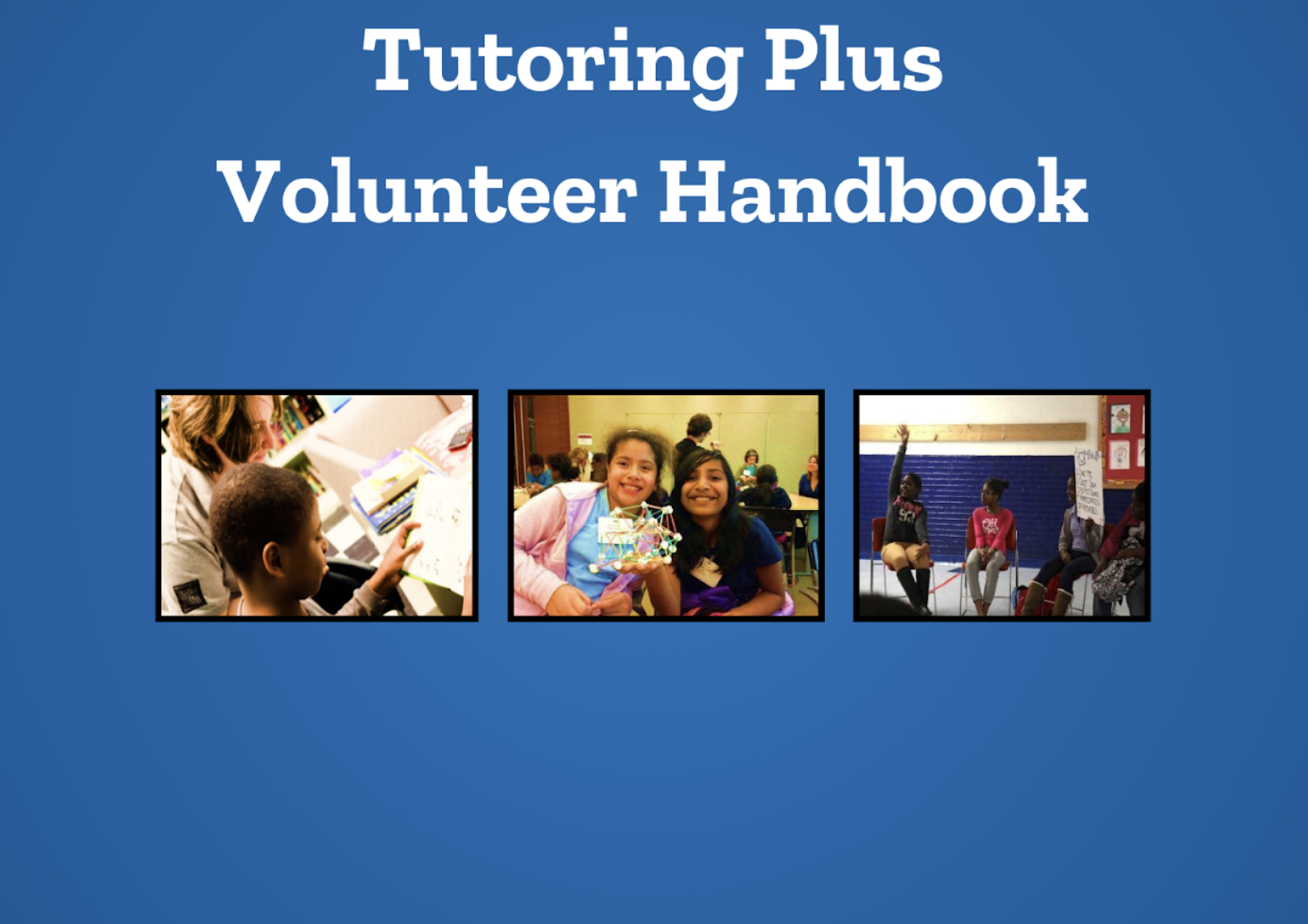It only takes one hour a week to make an impact!
How to get started…
Fill out our Volunteer Application! It will ask for your grade level, location, evening, and subject preferences. It is estimated to take 10-15 minutes.
Volunteer Application
CORI Check
Complete the CORI form. You will need to provide your ID for this step. You will be prompted to complete your CORI after filling out the application.
You will receive an email from us to schedule a Matching Conference via Google Appointments. This is where we can get to know you better, academically and personally, to thoughtfully match you with a student.
Matching Conference
FAQs
-
Our commitment for 1:1 Tutoring & Mentoring volunteers is 1 hour a week for 1 academic semester.
-
Volunteers will get an introduction to Tutoring Plus through the application process and will receive orientation before they begin tutoring. We also have training opportunities throughout the school year, including a mentor training.
Each site also has program staff who are there to support volunteers and students throughout your sessions. We encourage you to communicate openly and in a timely manner with staff and to use them as a resource.
-
No, youth are expected to bring their assigned homework. If youth do not have homework, Tutoring Plus has supplemental academic materials available at all program sites.
-
All programs take place in trusted community spaces across Cambridge and are accessible by public transportation. For more information about our program sites, please check on our 1:1 Tutoring & Mentoring and Homework Centers pages.
-
We will acknowledge the receipt of your application within one week via email. Once we you complete the CORI check, we will follow up to schedule a Matching Conference with candidates who are good fit for our program.
-
While our 1:1 Tutoring & Mentoring program is our core program model, we have other ways for volunteers to get involved! Check the Volunteer Opportunities section below for more information.
Volunteer Opportunities
-
1:1 Tutoring & Mentoring Program
Become a tutor and mentor to a 4th-12th grader for 1 hour per week! As a tutor and mentor, you’ll provide academic support while building a meaningful relationships that fosters confidence and personal growth. Tutors and mentors make a lasting impact on a student’s educational journey. We ask for a minimum commitment of 1 academic semester.
-
Homework Center Drop-in Tutor
Support a small group of students in a safe and structured environment where they can complete homework. This is a drop-in volunteer opportunity, perfect for corporate groups or volunteers who can’t consistently commit to a full academic semester.
-
Enrichment Program Assistant
Assist students learning to code, complete hands-on math projects, or help students write poetry. We offer several Enrichment Programs throughout the year, each focused on a single topic or subject.
-
Volunteer Associate Board
Join a group of professionals committed to advancing educational equity. As an Associate Board member, you will support Tutoring Plus through fundraising, advocacy, and community building. This is a great opportunity for early- to mid-career professionals who want to grow their leadership and deepen their civic engagement.
-
Guest Speaker
Share your professional journey, personal experiences, or unique insights with our students. We have several opportunities for guest speakers throughout the year, including our Girls’ Media Enrichment Program, our CRLS Alum Panel, and more.
-
Special Skills Volunteers
Do you have a unique skill or talent you’d like to share? Whether it’s graphic design, music, photography, language proficiency, or any other expertise, we invite you to contribute in a way that aligns with your strengths. Your specialized skills can enhance our programs, provide new learning opportunities for students, and support our organizational needs.



